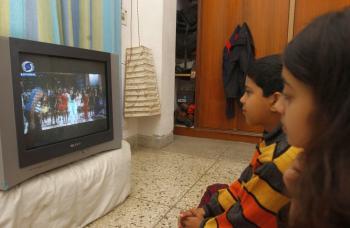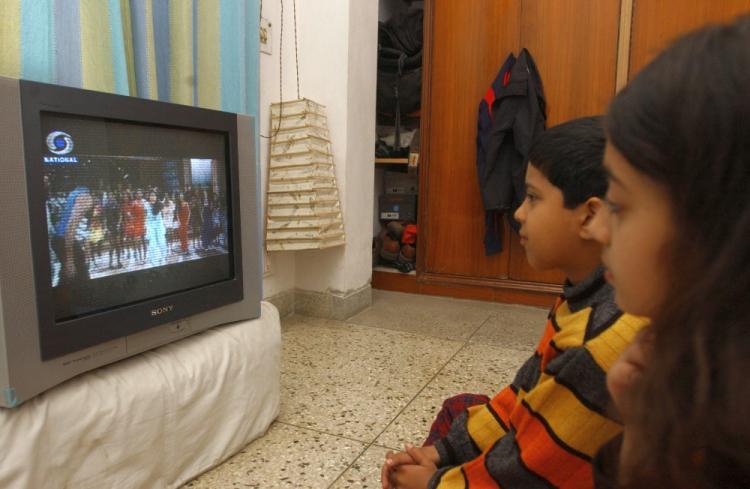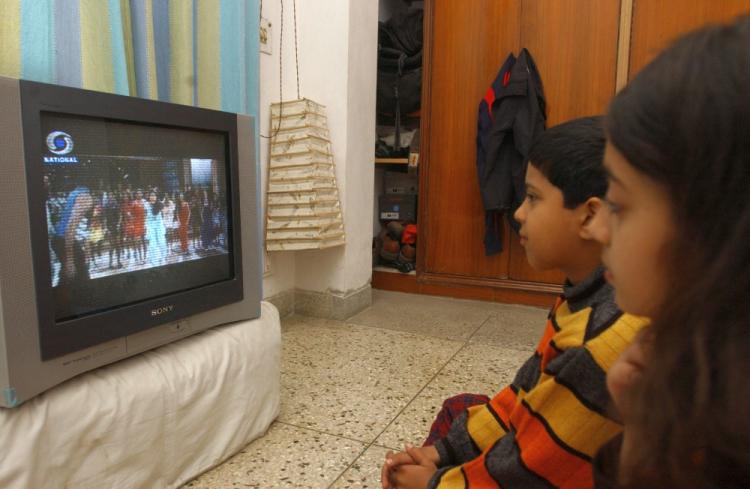Last week, the American Academy of Pediatrics (AAP) made the news by releasing a policy statement that criticizes modern media’s portrayal of teen sex, and its impact on the nation’s adolescents.
The report, titled “Sexuality, Contraception and the Media,” is a revision of an earlier statement released in Jan., 2001, under the same name, authored by Victor C. Strasburger, MD, and The Council on Communications and Media.
“There is a major disconnect between what mainstream media portray—casual sex and sexuality with no consequences—and what children and teenagers need,” the report’s abstract states, adding that what teenagers need is “straightforward information about human sexuality and the need for contraception when having sex.”
For perspective, a Nielsen Ratings report from last December showed that kids between the ages of 2 and 11 log an average of 25 hours of television per week.
The latter part of the above AAP conclusion falls a little short, and appears to walk a restrained line in the age of non-judgmental attitudes and political correctness.
Our culture, through mainstream television, film and entertainment media, has more often than not reduced sex to its physical aspects, downplayed the consequences of immoral, destructive behavior, and impressed on our children that these values are not only acceptable, but commonplace.
I anticipate the reaction some will have, just seeing the word immoral. They will laud the progression of society over the last 60-plus years towards a more open, sexually-liberated and free society.
But I think it’s time to give our children—and ourselves—more of a choice. I am tired of reality shows that value the hook-up, of sexual innuendos in children’s entertainment, and of crudeness and vulgarity in general. I find myself craving the good things in life.
Why not portray sitcom families that teach kids restraint and abstinence? Show us young couples that discuss a respect for the union between man and wife; of viewing sex as the consummation of a marriage; of undying love, and commitment.
Show us the costs of promiscuity and betrayal, of women and men who regret, and who later in life understand how their selfishness damaged the lives of others. Tell the story of a woman who preserves herself for her husband, and the man whose heart has only known the love of his bride, even on their 50th wedding anniversary.
These stories do exist, as I’ve met people like this, and myself learned the value of these things only later in life. I’ve learned what it means for a man to commit his heart, mind and body to only his wife; to be there always in thought and deed—and receive the same in return.
For many who choose to live life this way, maybe it hasn’t been easy, but they stuck to it, or learned there’s a better way after being hurt themselves. Let’s teach our children more of this, and emphasize what is good. It’s time we as a culture decide to turn a corner, and place value more and more on our noble human traits.
If this is the way we decide to go, our culture will change, and I believe our children will thank us and respect us for it. Let’s give them a choice, and show them another way. A way many of us have forgotten ourselves.
At the very least, let’s represent these values with equal footing in our society, and remind our children of the value of self-restraint and filial piety.
In reflecting on this aspect of our modern culture, I am reminded of the words of Marcus Aurelius: “The happiness of your life depends upon the quality of your thoughts: therefore, guard accordingly, and take care that you entertain no notions unsuitable to virtue, and reasonable nature.”
The report, titled “Sexuality, Contraception and the Media,” is a revision of an earlier statement released in Jan., 2001, under the same name, authored by Victor C. Strasburger, MD, and The Council on Communications and Media.
“There is a major disconnect between what mainstream media portray—casual sex and sexuality with no consequences—and what children and teenagers need,” the report’s abstract states, adding that what teenagers need is “straightforward information about human sexuality and the need for contraception when having sex.”
For perspective, a Nielsen Ratings report from last December showed that kids between the ages of 2 and 11 log an average of 25 hours of television per week.
The latter part of the above AAP conclusion falls a little short, and appears to walk a restrained line in the age of non-judgmental attitudes and political correctness.
Our culture, through mainstream television, film and entertainment media, has more often than not reduced sex to its physical aspects, downplayed the consequences of immoral, destructive behavior, and impressed on our children that these values are not only acceptable, but commonplace.
I anticipate the reaction some will have, just seeing the word immoral. They will laud the progression of society over the last 60-plus years towards a more open, sexually-liberated and free society.
But I think it’s time to give our children—and ourselves—more of a choice. I am tired of reality shows that value the hook-up, of sexual innuendos in children’s entertainment, and of crudeness and vulgarity in general. I find myself craving the good things in life.
Why not portray sitcom families that teach kids restraint and abstinence? Show us young couples that discuss a respect for the union between man and wife; of viewing sex as the consummation of a marriage; of undying love, and commitment.
Show us the costs of promiscuity and betrayal, of women and men who regret, and who later in life understand how their selfishness damaged the lives of others. Tell the story of a woman who preserves herself for her husband, and the man whose heart has only known the love of his bride, even on their 50th wedding anniversary.
These stories do exist, as I’ve met people like this, and myself learned the value of these things only later in life. I’ve learned what it means for a man to commit his heart, mind and body to only his wife; to be there always in thought and deed—and receive the same in return.
For many who choose to live life this way, maybe it hasn’t been easy, but they stuck to it, or learned there’s a better way after being hurt themselves. Let’s teach our children more of this, and emphasize what is good. It’s time we as a culture decide to turn a corner, and place value more and more on our noble human traits.
If this is the way we decide to go, our culture will change, and I believe our children will thank us and respect us for it. Let’s give them a choice, and show them another way. A way many of us have forgotten ourselves.
At the very least, let’s represent these values with equal footing in our society, and remind our children of the value of self-restraint and filial piety.
In reflecting on this aspect of our modern culture, I am reminded of the words of Marcus Aurelius: “The happiness of your life depends upon the quality of your thoughts: therefore, guard accordingly, and take care that you entertain no notions unsuitable to virtue, and reasonable nature.”






